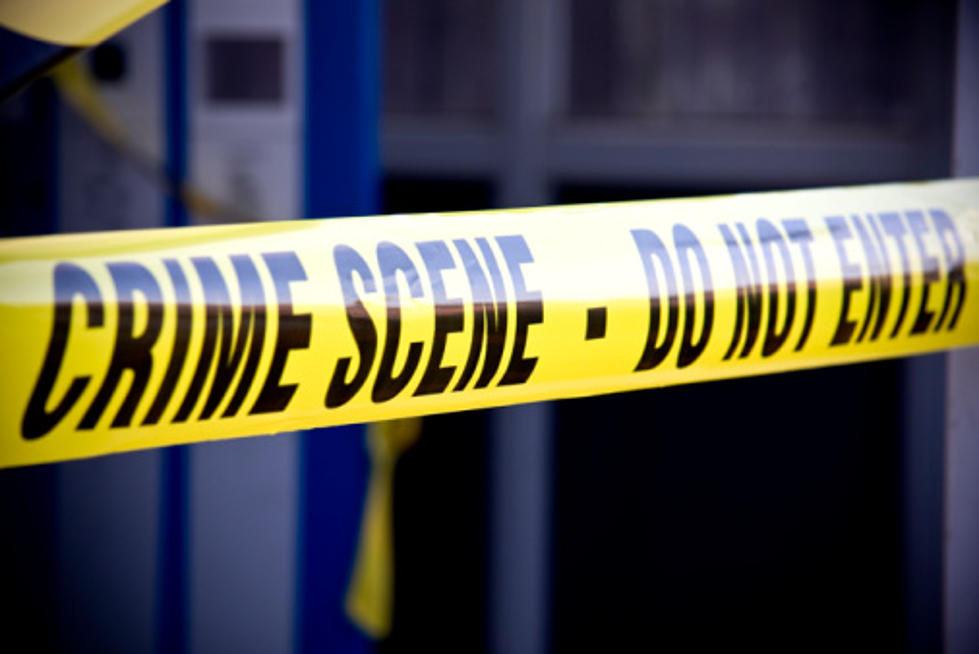
Patrol Provides Synopsis Of Some New Laws
Note: The abbreviated descriptions below are intended to make the public aware of some of the new legislation enacted by the Missouri General Assembly which is related to crime and motor vehicles. The listed legislation has been signed into law. Unless otherwise noted, these laws will go into effect August 28, 2021. The Patrol wishes to make the public aware of several of these new laws or changes to increase public awareness and education. For a complete description of these newly enacted laws, visit the Missouri House of Representatives or Missouri Senate websites or click on the links provided within this news release.
SB 26 PROVISIONS RELATED TO PUBLIC SAFETY & SB 53, 60 MODIFIES PROVISIONS RELATING TO PUBLIC SAFETY
EXCURSION GAMBLING BOATS (Sections 313.800, 313.805, and 313.812 RSMo) This bill modifies requirements that gaming facilities must be located on a boat, ferry, or other floating facility to allow a casino to be on a nonfloating facility within 1,000 feet of the Missouri River or Mississippi River, as defined in the bill.
RAP BACK PROGRAM (Section 590.030 RSMo)
This bill provides that, in addition to current requirements for licensure, peace officers must submit to being fingerprinted on or before January 1, 2022, for the purposes of a criminal history background check (including FBI records) and enrollment in the state and federal Rap Back Program. Additionally, any time a peace officer is commissioned with a different law enforcement agency he or she must submit to being fingerprinted. The resulting report shall be forwarded to the peace officer's law enforcement agency. The Rap Back enrollment shall be for the purposes of peace officer disciplinary reports as required by law.
LAW ENFORCEMENT OFFICER DISCIPLINARY ACTIONS (Section 590.502 RSMo)
The bill establishes the "Law Enforcement Officers' Bill of Rights" and specifies certain rights a law enforcement officer has when they are the subject of an administrative investigation or are being questioned or interviewed. These rights include being informed of the violation, requiring the complaint to be supported by a sworn affidavit, and allowing the officer to have an attorney or any duly authorized representative. The bill provides that any law enforcement officer who is suspended without pay, demoted, terminated, transferred, or placed on a status resulting in economic loss is entitled to a full due process hearing. Agencies will be deemed to be in compliance with this section if they already have a substantially similar policy in place.
FLASHING LIGHTS ON MOTOR VEHICLES (Sections 304.022 and 307.175 RSMo)
This bill adds vehicles and equipment owned, leased, or operated by a coroner, medical examiner, or forensic investigator of the County's Medical Examiner's Office, when responding to a crime scene, motor vehicle accident, workplace accident, or any location at which the services of those professionals have been requested by a law enforcement officer, to the list of vehicles authorized to use or display fixed, flashing, or rotating red or red and blue lights.
HEAD START SCHOOL BUSES (Section 304.050 RSMo)
This bill provides that a certified Head Start school bus is subject to all provisions that a certified school bus is subject, including in statute regarding traffic control for school bus loading, stopping, and passing purposes.
This provision has a delayed effective date of January 1, 2022.
OFFENSE OF UNLAWFUL POSTING OF CERTAIN INFORMATION ONLINE (Section 565.240 RSMo)
Currently, it is a class C misdemeanor if a person commits the offense of unlawful posting of certain information over the internet if they knowingly post the name, home address, Social Security number, or telephone number of any person on the internet intending to cause great bodily harm or death, or threatening to cause great bodily harm or death to such person.
This bill modifies the current offense by adding "any other personally identifiable information." If a person posts the described information of any law enforcement officer, corrections officer, parole officer, judge, commissioner, or prosecuting attorney, or the information of an immediate family member of such officer, judge, commissioner, or prosecuting attorney, they shall be guilty of a class E felony.
SEXUAL MISCONDUCT OF POLICE OFFICERS (Section 566.145 RSMo)
The bill provides that a law enforcement officer who engages in sexual conduct with a detainee or prisoner who is in the custody of such officer shall be guilty of a class E felony. A person also commits the offense if the person is a probation and parole officer or a police officer or an employee of or a person assigned to work in a jail, prison, or correctional facility and the person has sexual conduct on duty and the offense is committed by means of coercion.
UNLAWFUL USE OF A LASER POINTER (Section 574.110 RSMo)
This bill creates the offense of using a laser pointer, as defined in the bill, by knowingly directing the light from a laser pointer at a uniformed safety officer, including a peace officer as defined in Section 590.010 RSMo, security guard, firefighter, emergency medical worker, or other uniformed municipal, state, or federal officer. Violation of this offense is a class A misdemeanor.
RESPIRATORY CHOKE HOLDS (Section 590.805 RSMo)
This bill provides that a law enforcement officer is prohibited from knowingly using a respiratory chokehold unless it is being used in defense of the officer or another person from serious physical injury or death. A "respiratory choke-hold" includes the use of any body part or object to attempt to control or disable a person by applying pressure to the person's neck with the purpose of controlling or restricting the person's breathing.
POLICE USE OF FORCE DATABASE (Section 590.1265 RSMo)
This bill establishes the "Police Use of Force Transparency bill of 2021." Starting March 1, 2022, each law enforcement agency shall, at least annually, collect and report local data on use-of-force incidents involving peace officers to the National Use of Force Data Collection through the Law Enforcement Enterprise Portal administered by the Federal Bureau of Investigation. Use-of-force incidents shall include fatalities and serious physical injuries that are connected to the use of force by an officer. Additionally, each law enforcement agency shall submit such information to the Department of Public Safety. The Department of Public Safety shall publish the data reported at least annually and make it publicly available starting March 1, 2023. Finally, the Department of Public Safety shall analyze trends and disparities in rates of use of force by all law enforcement agencies and release a report to the public no later than June 30, 2025, and update it at least every five years.
SB 262 — TRANSPORTATION This bill modifies provisions relating to transportation.
TRANSPORTATION FUNDING This bill enacts an additional tax on motor fuel, beginning with 2.5 cents in October 2021, and increasing by 2.5 cents in each fiscal year until reaching an additional 12.5 cents per gallon on July 1, 2025 (Section 142.803.3 RSMo).
ODOMETER READINGS The bill increases, from 10 years to 20 years, the maximum age of a motor vehicle required to have its odometer readings recorded in certain circumstances (Sections 301.192.1(6) and 301.280.1 RSMo). The bill specifies that the Department of Revenue may allow electronic signatures on written powers of attorney authorizing mileage disclosures and transfers of ownership (Section 407.536.8 RSMo).
COMMERCIAL DRIVING LICENSE BANS FOR HUMAN TRAFFICKING CONVICTIONS
The bill enacts a lifetime ban from driving a commercial motor vehicle for any person convicted of using a commercial motor vehicle in the commission of a felony involving "severe forms of human trafficking in persons,” as defined by federal law (Section 302.755.19 RSMo).
HB 557 — PROTECTION OF CHILDREN
This bill adds a process by which an "exempt-from-licensure residential care facility,” is required to notify the Department of Social Services of their existence and comply with provisions that protect the safety of the children in residence. The provisions include fire and safety inspections, local health department inspections, background checks, medical records for all residents, and information about schools serving the children. This bill creates a process for DSS to provide background checks for licensed residential care facilities or child placing agencies and for residential care facilities subject to the notification requirements of Sections 210.1250 to 210.1286 RSMo. When there are allegations of abuse or neglect in the residential facility, the bill outlines how DSS can petition a court for an order for a home to present a child that is the subject of a child abuse investigation. The bill includes an emergency clause for immediate implementation to protect children.
SB 49 — WATERCRAFT
This bill modifies provisions relating to watercraft and prohibits vessels positioned within 100 feet of a permitted boat dock from being anchored in a manner that obstructs ingress or egress of watercraft to or from the dock, unless authorized by the boat dock permit holder.
The bill also provides that no person shall secure a vessel to or enter upon a private permitted boat dock unless authorized to do so by the boat dock permit holder, or as specified in the bill. A violation of these provisions shall be an infraction. Operating or positioning a vessel in a manner that obstructs or impedes the normal flow of traffic on the waters of this state will be an infraction for a first offense or a class B misdemeanor for a second or subsequent offense (Section 306.221 RSMo).
SB 57 — PROVISIONS RELATING TO FUNDING TO CERTAIN ORGANIZATIONS TO DETER CRIMINAL BEHAVIOR
This bill establishes the "Critical Incident Stress Management Program" within the Department of Public Safety. This program provides services for peace officers to assist them in coping with stress and potential psychological trauma resulting from a response to a critical incident or emotionally difficult event. Additionally, the bill creates the "988 Public Safety Fund" within the State Treasury, which shall be used to provide consultation, risk assessment, education, intervention, and other crisis intervention services to peace officers who have responded to a critical incident or emotionally difficult event. This act also provides that all peace officers shall be required to meet with a program service provider once every three to five years for a mental health check-in.
More From KIX 105.7










